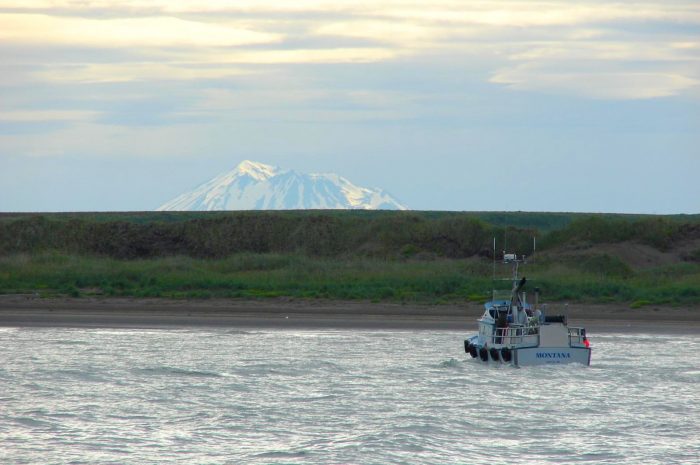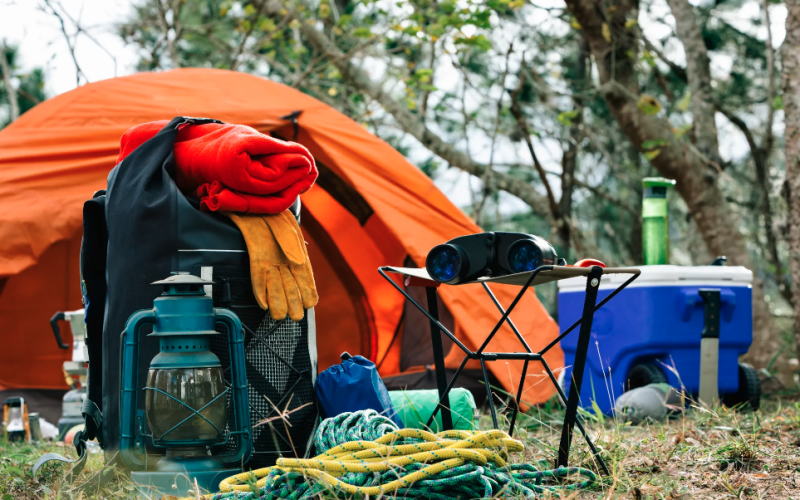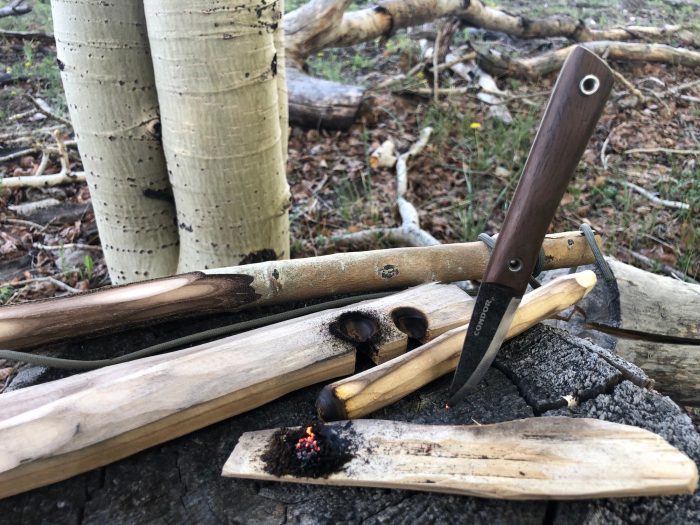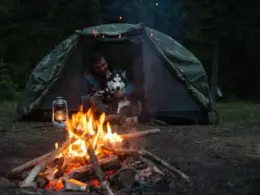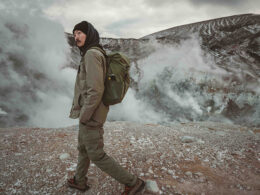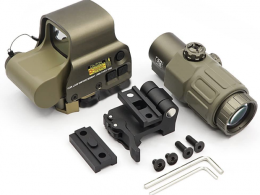The fishing season here in Alaska is quickly approaching, and for some parts of the state it has already begun. As I talked about in the last article, this time of year is exciting, and it feels like just about anything is possible. The anticipation is high, and as guides, we can’t wait to see what this year will bring. That’s the easy part, thinking about the fishing, the people we’ll meet, and hopefully some nice weather over the next few months. What’s harder, is thinking about all the work that needs to get done in order to provide the experiences people are looking for. While a good guide or lodge may make it feel effortless or a simple job that doesn’t come home with you, the reality is a lot of hard work goes into achieving that impression.
Table of Contents
The Lodge
In years past I guided at a fairly large, world class, lodge located in Bristol Bay. It was an impressive operation set in the middle of nowhere with four float planes that provided access to some of the best fishing in the world. We would host up to 24 anglers every week, rotating them through multiple lakes, rivers, and outcamps – plans changing almost daily depending on the fishing reports, weather, and angler interest. At the beginning of the season, before the salmon really started to arrive, we had certain locations that were best. Later in the year some fisheries would be abandoned, while others were just starting up. This type of constant motion happened almost entirely in the background.
The work was non stop throughout the season, but much of the foundation was laid in the weeks leading up to “opening day”. This is when most of the heavy lifting – both figuratively and literally – would happen. Getting supplies of any kind to the lodge was quite a feat. For example, just imagine how much food is needed to feed 24 guests and roughly 30 staff for 13 weeks…I can tell you it’s a lot. During the preseason we weren’t fishing guides, we were painters, carpenters, and general laborers. Without any road access, everything had to be flown into the lodge on one of the float planes. This meant a 30-45 minute flight from the lodge to a lake that was on the road system. From the lake, we would drive 2 large cargo vans 30 minutes to the nearest town, where we would open the shipping cargo container that had just made its way around the Aleutian islands. We would be tasked with loading as much as possible into the vans, then making the same trip in reverse – over and over and over again. This also went for fuel (which was pumped into an aluminum holding tank in the plane, then repumped out of the plane to a holding tank at the lodge), building supplies, fishing supplies, large propane bottles, 2x4s, and every other little thing you can think of.
Because the planes were never idle, we would simultaneously be setting up several outcamps in the area and getting all the boats at the lodge ready. These boats were stored upside down on top of each other. Our job was to manually flip them, help get them loaded onto an old fork lift, place them in the water, then mount an outboard. Of course all the outboards needed to be inspected before they were mounted as well. Now that the boat was in the water and had power, we had to find everything else the boat needed – the location of which were completely dependent on where last season’s guides thought they should go. Oars and oar locks, three boat cushions, three life-jackets, anchor and line, a bail bucket, and other miscellaneous items. The end result was a line of beautiful and ready to use boats…but they didn’t appear magically.
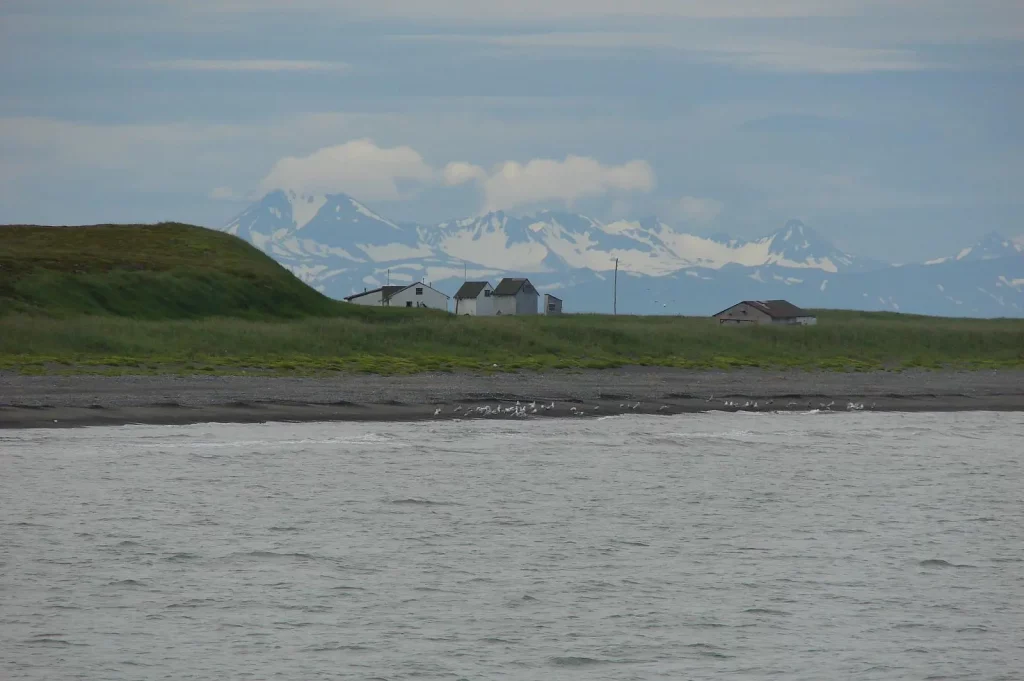
The Outcamps
In addition to the preparation at the lodge, we also needed to set up the aforementioned outcamps. These outcamps were placed at our most frequent fishing locations, and would house the guides for weeks at a time, allowing guests to be flown out for the day, fish, then return to the lodge while the guides stayed at the camp. They are temporary setups which would include a wall tent housing 2-3 cots, a folding table with a camp stove on it and usually a large awning covering another table and some camp chairs for lunches with the guests. All of this had to be flown in and out for setup and breakdown.
All of these outcamps were disconnected from the lodge, so the accompanying boats were stashed nearby – high on the riverbank to be retrieved and readied in the spring. A group of guides would be flown out to the stash site (on a “boat mission”) with much of the same gear as needed at the lodge, including the outboards. I can say that loading and unloading outboards into a floatplane is never fun, especially on the river where there is a constant risk of the motor tumbling into the water. Usually the boats would be flipped onto a set of rollers that would be used to roll them down to the water. An inexact science that could present some dangerous situations.
Once the boats were floating and had motors it was time to bring them to the outcamp site. Most times, this was pretty straightforward as you had someone who knew where the camp was lead the way. One time, we had to run boats about 60 river miles down towards Bristol Bay without any of us having been there before. We didn’t have a GPS but instead cryptic instructions from the camp manager on where to look. They were basically a bend with a bank and some trees…which surprisingly didn’t help too much. Our comfort lied in the fact that we had also been told the plane would be there before ust…a much more useful landmark. We started the journey downstream, and as we got closer to where we estimated the camp to be, we grew more nervous as there was no plane – and none had flown over (although there were many bends and trees). Eventually the braids widened and we realized we were out of the river and into the delta, a huge expanse of water that we had no business being in. On the off chance this was correct, we kept going until two of the four boats hit gravel bars, luckily with only minor damage. That’s when we decided it was time to turn around and with a little more vibration in the boats, make our way up river, hopefully finding something we had missed. Eventually the plane came, buzzed us overhead, and led us upriver to the correct location. Other than some dinged props it was a success.
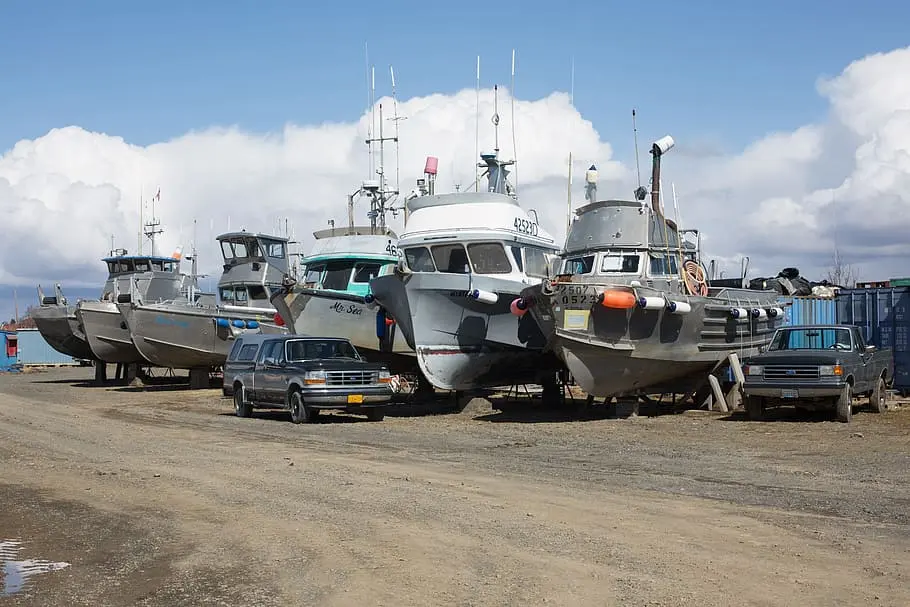
The Bonds Were Formed
Preseason prep was a lot of work, and a lot of stress. We had to be ready for the first arriving guests, and no matter how much of the to do list was completed, it felt like it was always too long to complete. Somehow, and someway, with a lot of work and determination we always ended up being ready. And it wasn’t all bad, these types of missions and experiences helped the crew and guides form a relationship and get to know each other before the season really got rolling. You were able to learn a lot about the people you would be spending the next 4 months with. How was their attitude? Did they work well under pressure? Would they pull their weight and how would they react when things went wrong or plans changed? All of this was useful information that would help shape assignments for the rest of the season.
It’s where many of the bonds were formed. At the end of the day, we would all be able to go up to the lodge and share stories about the day – usually done over a few beers and sometimes late into the night. All to wake up and do it over again the next day. I still have lifelong friends that I met at the lodge, and I believe most of it is because of what happened during the preseason. It’s really the only time that the crew and staff were alone to interact only with themselves. Once the guests step off the plane for the first time, everything changes. Sure, there is still a lot of work that happens but goals and priorities shift. The behind the scenes operations become more tactical and segmented rather than the entire staff working towards a singular and concentrated goal. It’s a unique working experience, one where you don’t get to leave and go home after the day is done. Your work is your home – for better or worse.
Do I miss loading and unloading outboard motors? Initially I wanted to say hell no…but as I think back on those times I couldn’t help but feel a bit of nostalgia. It may be rose colored glasses, but there was a kind of joy in the misery. For as tough as it could be I have a lot of memories involving laughter. Some of the best jokes I’ve ever heard were on those missions, and some stories that I thought would end in a fist fight then, are recalled with laughter now.
I wouldn’t be painting a complete picture if I didn’t mention that part of the preseason also included “job training” – which for guides just means fishing. For many of the guides, it might be the only time of the year they get to cast a rod for themselves, and for the first year’s it’s the reason they applied for the job. It’s truly amazing how catching giant arctic char, lake trout, or rainbows on seemingly every cast can turn a tough day into a great one…especially for those who are passionate enough about it to make it their livelihood.
In Conclusion
Obviously this is an extreme example looking at a large, complicated operation – but whether it’s a fly out lodge or an individual taking you out for a wade trip there is a lot that happens behind the scenes. And we do it all because we love to be out there, and we love to share these experiences with others.

